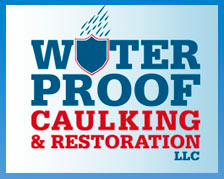Commercial buildings benefit extensively from proper caulking. Commercial caulking improves energy efficiency, prevents the growth of mold and mildew, and keeps the building watertight, which lowers maintenance costs. Many people are surprised to learn that there are different types of caulk, though. After all, they all serve the same basic purpose, so why would there be any different types? However, not every type of caulk is suitable for every purpose.
Types Of Commercial Caulk
Before you can begin caulking your building, you need to be sure that you are using the correct type of caulk, and you will most likely need more than one. Here are the different types of caulk you need to be aware of:
Acrylic Latex Caulk
Also called painter’s caulk, this is probably what most people think of when they think of caulk. It is also the cheapest type of caulk in most stores. It is meant to cover small holes and cracks and then be painted over.
It adheres very well to wood, drywall, and masonry. It is meant for interior use only, and it usually cannot create a water-tight seal.
Vinyl Latex Caulk
Vinyl latex caulk is meant to be similar to acrylic latex in ease of use and cleanup, while also being much more durable. Acrylic latex is very soft, and it is water soluble. Vinyl latex is much tougher and is waterproof, making it suitable for outdoor use.
Acrylic Tile Sealant
This caulk comes in tiny tubes and is meant for patching holes and gaps between tiles in areas that are prone to mold and mildew. It is essentially a way to keep the tile well-sealed in between applications of a more durable sealant, and it should not be used as a primary sealant.
Siliconized Acrylic Sealant
Siliconized acrylic combines the easy application of acrylic with the added durability of silicon. It is slightly more difficult to clean up than pure acrylic, but it is more durable and it provides a water-tight seal.
It is even suitable for outdoor use, although it is not necessarily the best choice for outdoor applications. It will do in a pinch, though.
Pure Silicone
This is one of the most durable and water-tight caulks that is made. It is ideal for bathrooms, especially sinks and toilets, because it adheres very well to non-porous surfaces. Once applied, it will last for decades, too.
So why not use it for all of your caulking needs? Pure silicone caulk does not adhere well to porous surfaces like wood, masonry, or drywall. This severely limits its usefulness, as it means that it is unsuitable for use in most of the places you need caulking.
Adhesive Caulk
Also called liquid nails, adhesive caulks are essentially extremely strong glue meant to hold two surfaces together while also sealing the joint.
Most adhesive caulks are resistant to mold and mildew, as well. They tend to be very difficult to clean up, though, which can be a problem if they develop cracks and holes and need to be replaced.
Butyl Rubber
This is what gets used most often in roofing, because it is extremely durable, water-tight, and flexible. It is ideal for roofs, chimneys, gutters, and foundations, too. It will seal up a building against water without much difficulty, and it will last for years without needing maintenance.
When it finally does need maintenance, it is relatively easy to clean. It can be difficult and messy to apply, though, which is why it is rarely used indoors.
Asphalt Caulk
Asphalt looks and smells like Butyl, but the big difference is that Butyl handles sunlight just fine, while asphalt does not. It is usually used to seal shingles, since that minimizes its exposure to sunlight.
Fireproof Caulk
This bright red material is used to prevent fires from spreading through a building. It is used by professionals when they install and repair insulation and to seal holes in the building where electrical and plumbing lines pierce the structure.
Why You Should Hire A Professional Commercial Caulking Contractor
All of these different types of caulk have different uses, and your building likely needs several of them, if not all of them. Trying to do this work yourself is difficult, frustrating, and very time-consuming. It can also be challenging at times to know if you are using the right type of caulk.
For all these reasons, it is best to hire professional caulk contractors to handle your building’s caulking needs. A professional will always know which type of caulk is best for each room and each situation, and they will have easy access to all of them. They will also be able to apply the caulk neatly and cleanly much faster than you can.
If you would like to schedule a consultation or learn more about commercial caulking, contact Waterproof Caulking today.
